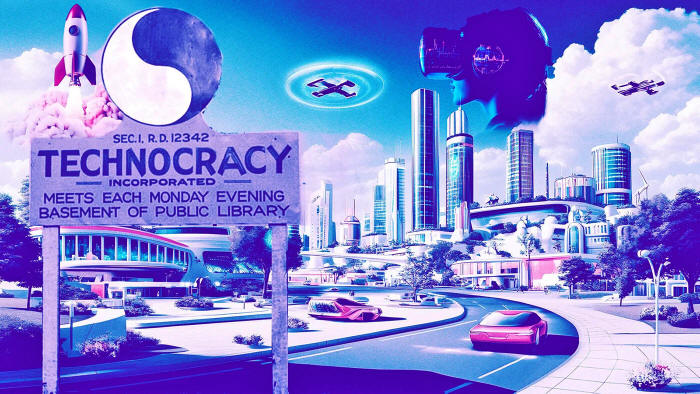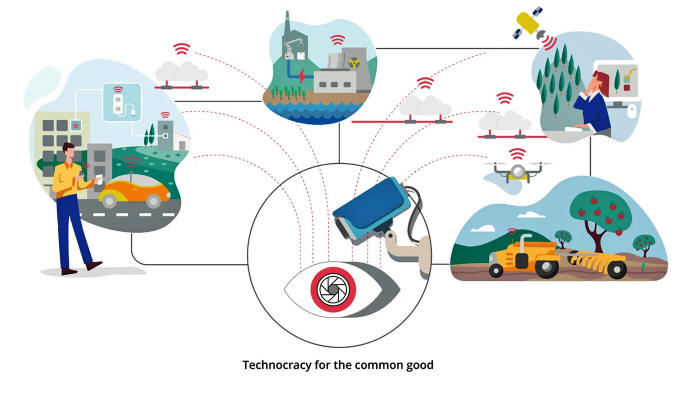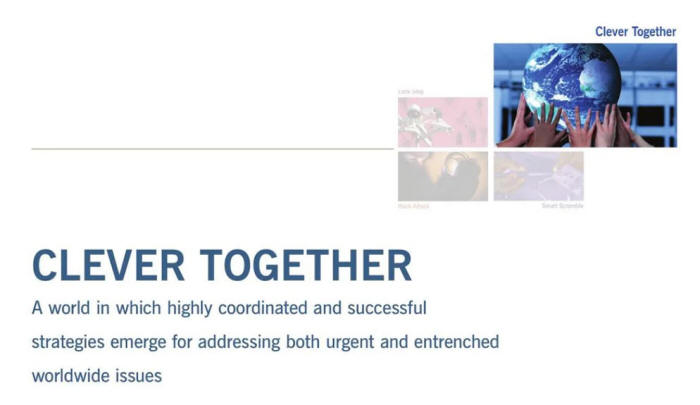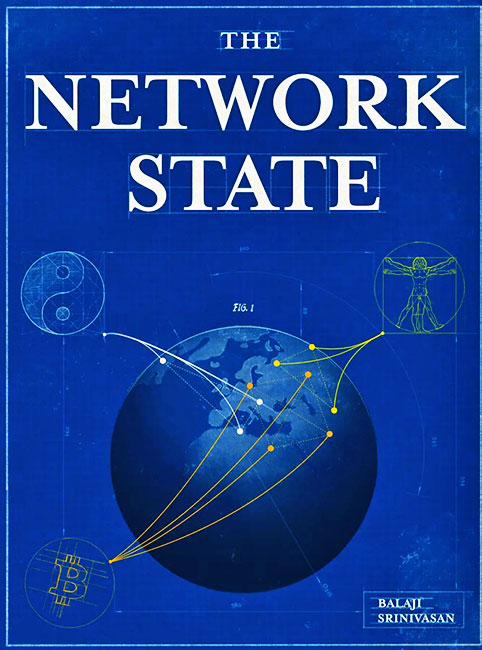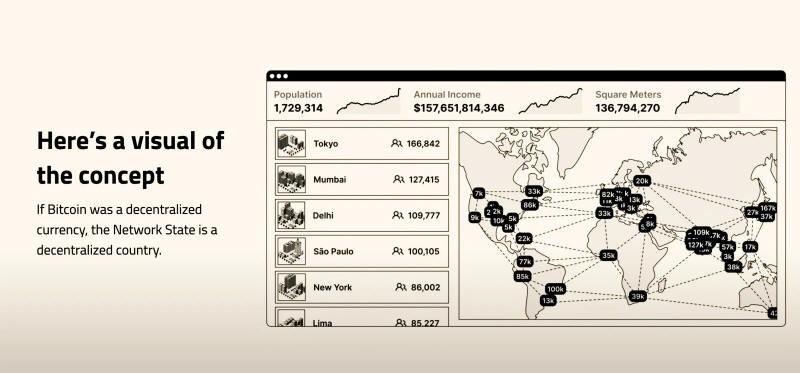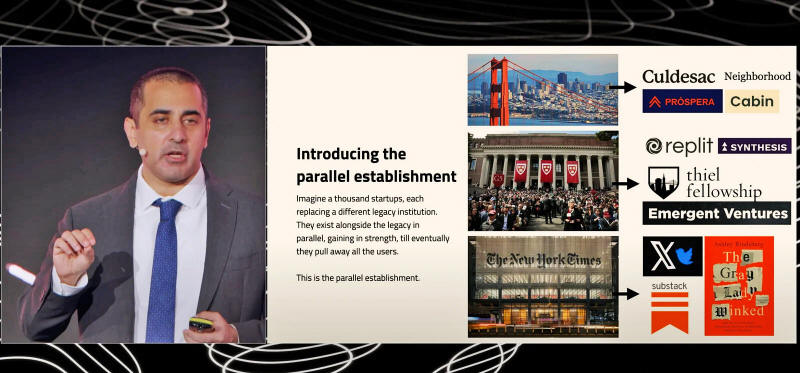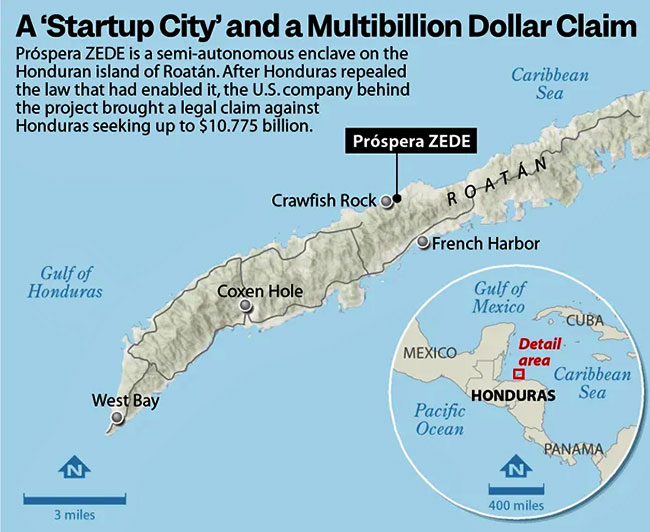|
Technocracy Ascending
The Common Good Utopia?
This installment investigates how both Eastern and
Western technocrats are creating high-tech utopian societies that
supposedly advance the common good of all.
Technocracy Inc. recruits (right) Source: Technocracy Technate
Picture Archive
It would outlaw politicians and bureaucrats and instead favor rule by experts employing technology to manage all aspects of society, solving the complex problems of human governance.
He described it as a system,
Constitutional and democratic governance would yield authority to a new class of technical men remaking the government into an automated system fueled by insatiable amounts of data collected about all people and social functions.
Modern technocrats like Parag Khanna also believe that democracy is a relic of the past and what America (and the world) needs is "more technocracy - a lot more."
In Technocracy in America: The Rise of the Info State, Khanna further states that:
Khanna's long-term planning to arrive at
technocratic governance began to accelerate in the 1970s with the
Trilateral Commission's goal of developing a New International
Economic Order. China's rise as an economic power and the shift toward globalization can be directly traced to Trilateral initiatives.
In 1933, Harold Loeb, an original Technocracy Inc. devotee (who eventually formed his own Continental Committee on Technocracy), wrote in Life in a Technocracy that technocratic governance was the only solution to the world's problems.
He believed it was inevitable and would emerge through a combined evolution slowly over time, and revolution, through one big final push when conditions were ripe.
Given the current state, it seems as though America is now experiencing that final revolutionary push.
What Scott, Khanna, and Loeb all shared is a belief that technocracy is the one form of government capable of producing optimum good for all.
They believed that by focusing on science, automation, data, and surveillance, an era of utmost efficiency, abundant living, and maximum leisure would emerge, despite requiring top-down control and data on everyone and everything down to the smallest detail.
The rest of this installment will investigate if they can truly deliver on their utopian promises.
The Globalist Vision of Technocracy - for the Collective Good of All
Imagine a world where the United Nations' (UN) Sustainable Development Goals (SDGs) are achieved through increased centralized control.
The digital revolution allows for unprecedented surveillance (even while you work) and steering of all social and ecological systems.
Regional governments emerge and force top-down management of all economic activity through a symbiotic relationship between states, multinational companies, and NGOs.
A few corporate monopolies (i.e., too big to fail) employ massive amounts of social, behavioral, and even genetic data along with automation and powerful artificial intelligence (AI) systems to maintain their hold over all industries and people.
In this world, energy is distributed through massive fields of concentrated solar power.
Once-thriving family farms are now obsolete, giving way to systems managed by AI, robotics, and swarms of drones called 'agrobots.' Real-time ecosystem management produces abundant agricultural products without harming the environment.
Strong economic performance produces revenue-sustaining centralized governments, public services, and welfare systems.
Despite the monetary wealth and abundant resources produced, this tightly controlled world comes with significant tradeoffs. Individual rights and personal freedoms are sacrificed for collective interests and the "common good."
Behind the scenes, ruling powers seize control of public discourse, however, most don't even notice.
Citizens wink at how authoritarian governments have become, because their needs are met by the interlocking state-corporate power structure.
In previous times this fascist merger was resisted but in this imagined utopia, it's simply viewed as a pragmatic way of managing a complex world. Since the smart city experience - where everything is interconnected all the time - is very convenient and efficient, not many care about the loss of privacy.
The digital transformation allows governments to predict societal problems, control behavior, encourage sustainable lifestyles through "nudging" and "choice-editing," and easily identify those who create disorder.
A few complain about the "Big Brother" system, alleging that carbon allowances don't cover their needs. But their dissent is easily neutralized. In some countries, libertarian groups attempt to effect change, but political parties have gone the way of dinosaurs, yielding their power and authority to AI and billionaire tech experts.
This depiction may sound like a book proposal for the next great dystopian fiction novel or a nod to harrowing works of the past.
However, it actually describes a world envisioned by the European Environment Agency (EEA), an organization founded in 1994 to support European environmental policy.
The EEA has 32 member countries and 6 cooperating countries.
It also works closely with the European Commission, the European Parliament and the Council of the European Union.
Source: The 'Scenarios for a sustainable Europe in 2050' project, Imaginary 1
In Imaginary 1 - Technocracy for the Common Good, the EEA describes what it believes is a plausible scenario for achieving a sustainable Europe by the year 2050.
Though proposed for the European Union (EU), the vision is eerily similar to the Clever Together scenario envisioned by the Rockefeller Foundation and the Global Business Network (GBN) for the entire world.
As mentioned in part 2, the Rockefellers have played a large role in planting and watering the seeds of technocratic governance through the United Nations, Trilateral Commission, and philanthropic endeavors.
Clever Together was one of four situations featured in "Scenarios for the Futures of Technology and International Development," a white paper published in 2010 to,
This report also contained the Lockstep scenario in which a pandemic engulfed the world in 2012, resulting in draconian laws and increased surveillance with mandatory biometric IDs (e.g., vaccine passports) and face masks becoming commonplace.
After having lived through the tyranny of the COVID-19 era, it's fair to ask whether Lockstep was simply a fictional scenario or a roadmap for increasing authoritarian control over populations.
Source: Scenarios for the Futures of Technology and International Development
Like Technocracy for the Common Good, Clever Together pictures a highly coordinated society forged by computer algorithms, otherwise known as algocracy.
While attempting to stave off planetary doom from climate change issues, "systems thinking" and "systems acting" on a global scale become paramount.
In this scenario, 2015 was the watershed for countries to collectively address climate issues, culminating in an international agreement in 2017 to curb carbon emissions.
The proposed agreements just happened to coincide with the real life implementation of the 2030 Agenda for Sustainable Development, the related SDGs, and the Paris Agreement, all adopted in 2015.
Clever Together has also proven accurate regarding developments that have accelerated centralization, data collection, surveillance, the demise of nation-states, and the rise of regional governance - all supposedly for the common good. In detailing how global coordination helped bring about new ways to monitor energy use through smart grids, the paper reports that:
The UN's own Our Common Agenda report and associated policy briefs solidify and build upon Clever Together, highlighting the need for,
The 11 policy briefs cover a wide range of issues from recrafting the international financial architecture to combating disinformation on digital platforms, and more.
The flowery language used throughout the documents make the schemes sound so wonderful.
However, a deeper dive reveals that these plans will be accomplished at the expense of individual rights, national sovereignty, and America's constitutional republic.
Source: United Nations
In the globalist vision of technocracy, the world merges together through regional alignments like BRICS, the EU, and Scott's imagined North American Technate to cooperate on,
This new world order has been fashioned by men like Zbigniew Brzezinski and David Rockefeller, organizations like the Club of Rome, and initiatives like the UN's Agenda 21 and Agenda 2030.
Under global technocracy, individual rights and nation-state rule are reduced for the sake of the collective, multilateral world. Peace is achieved as regional powers seek mutual benefit.
Public-private partnerships (PPPs) consisting of multinational corporations, governments, and NGOs maintain control over society by advancing the same goals and outcomes.
Technology becomes god-like in facilitating global governance through AI, smart cities, wearable and implantable tech, and other Fourth Industrial Revolution (4IR) innovations,
Recently retired World Economic Forum founder (WEF) Klaus Schwab may have described global technocracy best in an excerpt from his book on Stakeholder Capitalism, which states:
Though upholding human rights is discussed, note that individuals are not found in Schwab's list of stakeholders.
The vast majority of people will be expected to comply with whatever public-private partnerships decide is the right course of action to manage society.
You can be assured that the technocrats embedded within each of these stakeholder groups will be leading the charge.
Right before our eyes, the world is being transformed into regional autocracies governed by or closely aligned with tech experts. Automated, AI-run societies are rapidly developing where human agency is stripped away and compliance with technocratic dictates is the sole path to survival.
This is the globalist vision of technocracy.
Mark Carney, Canada's self-described "global elitist" unelected prime minister, epitomizes global technocracy with key roles across various stakeholders in,
...and a host of additional globalist institutions.
The Anti-Globalist/Populist Vision of Technocracy
In the United States and other countries such as Hungary, India, and Turkey, populism has seemingly offered an alternative to the globalist vision by defending individual rights and democratic principles.
In a speech delivered at CPAC Texas in 2022, Hungarian prime minister Viktor OrbŠn is quoted as saying:
In this regard, Donald Trump and fellow populist leaders function as the antithesis of Mark Carney.
However, assuming populists like Trump are on the side of everyday people may prove unwise upon closer examination.
As highlighted in part 4, the Dark Enlightenment/Neoreaction (NRx) movement was pioneered by men like Curtis Yarvin and Nick Land.
Technocrats connected to the movement are now embedded within Trump's administration.
Whether serving as benefactors, advisers, appointees, or elected leaders, men like,
...are steadily advancing technocracy in America under the guise of MAGA/Dark MAGA.
Like the globalist version, they're attempting to create a techno-utopian state where the good of all is promised.
Though the terminology and methodology are slightly different, the desired outcomes of the MAGA anti-globalists look very similar to their globalist counterparts.
SMART Cities Relabeled as Network States
CLICK image for PDF...
In 2022, engineer Balaji Srinivasan, former CTO at Coinbase and partner at Andreesen Horowitz, published "The Network State - How to Start a New Country."
The book challenges the concept of the nation state and proposes a new form of government that begins as a sovereign digital entity before becoming a physical reality. Curiously, it was published on the anniversary of the U.S. Declaration of Independence.
His one-sentence description of a Network State defines it as:
The process for establishing a Network State can be boiled down to three steps, including:
What a million-person Network State looks like on the map. Source: YouTube
Srinivasan's concept of the parallel establishment. Source: YouTube
Srinivasan, a multimillionaire with a net worth of over $150 million (mostly in Bitcoin), believes that nation-states governed by values based on God and established religions are outdated and ineffective.
Labeling God and the nation as "Leviathans" or "prime mover(s) who hover above all," he insists a third Leviathan will replace them and become even more powerful, saying:
Peter Thiel and Elon Musk, both named WEF Young Global Leaders in 2007 and 2008 respectively, along with the rest of the "PayPal Mafia," pioneered the concept of digital currency with the intent of replacing the current economic system and physical cash.
Their ideas would perhaps spawn a more seditious goal: replacing nation-states with digital startups.
Nick Land advanced the gov-corp concept and Curtis Yarvin pushed for Patchwork realms where nation-states are broken up and replaced by Big Tech companies ruled by CEO monarchs.
Srinivasan's Network State builds upon their vision as the model is now spreading its wings with the building of real life, alternative governments (to be discussed later).
The connection between these anti-democratic visionaries was further documented by the New York Times, who reported on the contents of an email Srinivasan sent to Yarvin in 2013.
In the email, Srinivasan suggested launching a coordinated effort to censor and dox a Tech Crunch journalist reporting on the ties between Silicon Valley and the Dark Enlightenment movement, saying:
Years later, Yarvin referenced Srinivasan while penning his own ideas of a startup state in an essay on remaking El Salvador, in which he wrote:
Yarvin's idea to facilitate a makeover of El Salvador's government involves employing America's premier technocrats in finance, science, information technology, and consulting including,
Of course, the list is much broader, but these are some of the major players foisting the anti-globalist version of technocracy upon an unsuspecting population.
Network or "startup states" are a radical concept that if adopted en masse, could make becoming a citizen of another nation almost as simple as choosing a new mobile provider.
However,
A few real life examples may provide the answers.
Průspera and Praxis - Technocratic Network Cities
Built on the concept of the Network State, Průspera is a private, free city located on the Caribbean Island of RoatŠn off the coast of La Ceiba, Honduras.
It was founded by Erick Brimen, a Venezuelan native and U.S. citizen with a military and business background and Guatemalan tech entrepreneur Gabriel Delgado, who both attended college in the U.S.
Like Curtis Yarvin, Průspera's founders believe that governments of the future will be treated as privatized startups.
Průspera is partially funded by Pronomos Capital, a venture capital (VC) fund dedicated to launching charter cities around the world "where the city is the product."
The fund was started by anarcho-capitalist Patri Friedman, grandson of economist Milton Friedman and bankrolled by Peter Thiel, fellow Palantir cofounder Joe Lonsdale, and Marc Andreesen of Andreesen Horowitz.
Balaji Srinivasan has also backed Průspera through the Balaji Fund, established in 2023 with billionaire Coinbase CEO Brian Armstrong on board as an investor.
Průspera was established after the passing of a 2013 Honduran law legalizing Zones for Employment and Economic Development, or "ZEDEs."
According to a Rest of World report, ZEDEs are cities inspired by Chinese free trade zones and are,
According to Inside Climate News the,
To date, Průspera reports that it has formed more than 200 businesses, has over 1,700 residents from more than 40 countries, and invested over $100 million to catalyze economic growth.
Individuals can apply as e-residents much like the system pioneered in Estonia, or become full time residents inside the Průspera ZEDE.
According to their website,
In 2019, Průspera began facing issues with native Hondurans over access to water.
When the Crawfish Rock community's cistern began malfunctioning, locals lost access to running water. Průspera stepped in and connected the village to its own water tank.
Residents were initially overjoyed that their taps were again working but soon became incredulous as water bills began arriving from Průspera's Institute for Excellence foundation (later renamed Průspera Foundation).
This was just the beginning of signs indicating that trouble was brewing in paradise.
After an encounter with police went viral, Brimen's reputation plummeted.
Local politicians began denouncing the ZEDE, leading to its eventual repeal in September 2024 when the Honduran Supreme Court overturned the law.
Since then, Honduras has been entrenched in a legal battle with Průspera who is suing the nation for $10.775 billion along with 14 other investor claims totaling more than $12 billion.
Průspera is arguing it has a right to continue operating for at least 10 more years despite the ZEDE law being ruled unconstitutional.
A Wired story noted that,
Source: ESRI, Paul Horn/
To date, it does not appear that the court reversal had much of an effect on Průspera's operations.
The technocratic gov-corp entity believes it is,
However, if their lawsuit is successful, it would prove devastating for the citizens of Crawfish Rock and Hondurans in general.
Gerardo Torres, Honduras' vice minister of foreign affairs, told Wired that:
Local perceptions of the elitist tech paradise nested inside a small island in the West Caribbean are not at all flattering.
Luisa Connor and Venessa Cardenas, president and vice president of the Crawfish Rock patronato, feel that the people behind Průspera are a gang of crypto colonialists exploiting the land and local community, stating:
Trump's initiative to make America the "world capital of artificial intelligence and crypto" has already been playing out in countries within its sphere of influence through people and organizations connected to Peter Thiel.
Infinita City (formerly Vitalia) is a popup city inside the Průspera ZEDE dedicated to developing biotech solutions with reduced regulations and minimal to no FDA oversight.
Both Sam Altman and Peter Thiel have donated to the company. Thiel believes that the possibility of injecting himself with young people's blood is "really interesting."
Symbiont Labs, another startup within the city, aims to "help people become self-sovereign cyborgs" by offering subdermal implants and custom-built censors.
If the 4IR is so evil,
Though Průspera believes it is fostering freedom, innovation, and an alternative to nation-state governance, it's advancing many of the same initiatives as the globalists they claim to stand against.
They also threaten to financially cripple an entire nation, crushing those who stand in their way.
Průspera may have done some good in the local community, but for indigenous people, it appears that the negatives far outweigh the positives.
As it stands, their way of life has been permanently altered, their well-being threatened, and their very existence put in jeopardy.
Source: Praxis
While Průspera is a well-established Network State, Praxis is still wetting its feet in the alternative governance space.
Dryden Brown, a 29-year-old college dropout turned visionary, is the founder and CEO of Praxis.
Piqued by Donald Trump's interest in purchasing Greenland during his first term as president, Brown himself tried to purchase the Arctic island nation, but was soundly rebuffed.
Brown later pivoted to an undisclosed location in Latin America or the Mediterranean as the headquarters for his future cryptostate.
Like Průspera, Praxis owes its existence to the Thiel-backed Pronomos Capital firm, which provided an initial funding round of $4.2 million in 2021 along with separate investments from,
Additional connections can be found in the following diagram:
Last October, Praxis raised an additional $525 million to help facilitate the company's goals to be,
The website boasts that,
Brown is a diehard accelerationist, believing technology and capitalism must rapidly advance to the point where micronations emerge with CEO monarchs.
Source: Praxis
Like Průspera, Praxis is intent on reducing,
Praxis' goal is to undermine the nation state in favor of online crypto communities.
This is clearly alluded to in "The Sovereign Network - Crypto's End Game," which mentions:
According to DMARGE, much of what Praxis is planning for its Network State sounds eerily similar to the "deep shifts" Klaus Schwab outlined in his 2016 book on The Fourth Industrial Revolution, citing that:
Howard Scott would be especially proud of Praxis' focus on real-time energy usage control and digital ID systems, as they were key tenets of his technocratic vision going back to the 1930s.
Praxis cites several other lofty goals in its Declaration of Ascent, including the establishment of a,
The Declaration asserts that Praxis will:
Praxis promises to,
However, fulfillment of these promises will employ many of the same societal control systems as outlined in the globalist vision of technocracy.
Freedom Cities - Uniquely American Patchworks and Network States
While the founders of Průspera and Praxis focused on building their "anti-globalist" startup states abroad, there have been several attempts both now, and in the past, to establish them on American soil.
What are known as innovation zones/districts, special economic zones (SEZs), charter cities, and research parks are all variations of Yarvin's Patchworks and Srinivasan's Network States.
As mentioned previously when discussing the origins of ZEDE law in Honduras, China pioneered the implementation of free trade zones operating in cities like Shanghai and Guangdong to bolster foreign investment and help companies prosper through lower tax rates, expedited customs clearance, and other benefits.
America wants to emulate (and surpass) what China has accomplished, and plans to bring similar economic zones to U.S. states are ramping up.
China is also the world's smart city leader with over 500 in various phases of construction, according to government data released in 2020.
Klaus Schwab once called China,
The U.S. is following China's lead in attempting to create corporate-friendly, regulation-light, continuously surveilled and connected economic districts within its counties and cities.
Perhaps only time will tell.
In 2023, Donald Trump proposed building "Freedom Cities" in a video outlining his plans to repurpose some federal land to build up to 10 new cities.
He promised these new cities would give Americans a,
Though he hasn't spoken much about it since, he sold the idea to millions of his supporters, especially those with deep pockets in the tech industry.
Last March, Wired reported that several groups met with President Trump and are drafting legislation to create "Freedom Cities" in order to:
The value and effectiveness of regulations and regulatory agencies as currently constructed is debatable, but without accountability and oversight we may be faced with Operation Warp Speed on steroids coming from all sectors, not just Big Pharma and their fast-tracked, experimental mRNA gene therapies.
Innovation should never trump safety and other human rights (pun intended).
The current war on regulatory activities waged by Musk's DOGE against agencies like the Consumer Protection Financial Bureau will only hurt ordinary, hardworking people while Big Tech, Wall Street, and other industries benefit from relaxed oversight.
Průspera is playing a key role in the initiative as its chief of staff, Trey Goff and other representatives have formed the Freedom Cities Coalition to advocate for the creation of as many startup cities as possible.
The coalition is a project of NeWay Capital LLC, a social impact investment firm headed by Průspera founders Erik Brimen and Gabriel Delgado.
"Freedom Cities," an obvious oxymoron, are akin to the smart cities discussed throughout publications produced by the United Nations and World Economic Forum with at least 140 established throughout the world.
The Freedom Cities Coalition proposes three ways to establish popup Patchworks across the American landscape, including through presidential Executive Order, state led Interstate Compact agreements, or congressional legislation.
They promise that "Freedom Cities" will create jobs, drive innovation, bolster American manufacturing, and combat China's economic threat.
Currently operating mainly in Africa and Latin America, the Charter Cities Institute is another organization now working to bring "Freedom Cities" to America through a partnership with the Frontier Foundation, whose objective is to,
Their Open Letter and Memo on Freedom Cities outline plans to engage the Trump administration in the creation of,
The Memo details private-sector investments totaling over $1 trillion that have poured in within the last five years from previous legislation like the CHIPS and Science Act and the Inflation Reduction Act, as well as new investments like the $500 billion Stargate Project.
"Freedom Cities" are key to maximizing these investments since they can opt out of certain regulations, cut through red tape, allow for private land conversion, and/or utilize federally owned land "spanning an average of 50,000 acres."
In addition, the foundation believes that "Freedom Cities" will:
Some reading this might be saying "This sounds great, sign me up."
But it must be pointed out that wealth rarely trickles down from these endeavors. Instead, it typically concentrates at the top.
"Freedom Cities," Network States - or whatever preferred euphemism they use - will likely produce no noticeable difference in spreading wealth to middle and lower classes.
In fact, they might be the quickest way to arrive at the WEF's vision of owning nothing and being happy.
These sovereign environments will empower the "broligarchy" to run roughshod and potentially rob you of privacy, wealth, rights, and well-being.
Another startup city project never making it past the proposal stage involved creating innovation zones in Storey County, Nevada to bring emerging technologies to the state, such as:
The proposal was put forth in 2021 by Blockchains, LLC, a tech firm which purchased 67,000 acres of land in Storey County in 2018.
The company desired to create a smart city with 35,000 residents.
State lawmakers rejected the proposal, and former governor Steve Sisolak later pulled the bill that would have given tech companies cart-blanche to form self-governing jurisdictions that operated independent of county and state government.
The tech-run governments would have been empowered to collect taxes, form school districts, and establish their own law enforcement, courts, and utilities.
Jeffrey Berns, CEO of Blockchains, LLC envisioned a smart city where people,
It turns out the "smart" in smart city really means,
Like Průspera and Praxis, the proposed "Freedom Cities" will largely operate outside the laws of the states and counties they reside in.
If they begin to proliferate across America, they may create the parallel establishments that Srinivasan says are designed to eventually replace current institutions with corporate run versions...
In these specialized zones, all power will reside with the billionaire owners who mostly share both the technocratic and transhuman vision of the future for all humanity.
Conclusion
Technocrats have set their sights on ridding the U.S. of its Constitution, overthrowing the monetary system, and installing a scientific dictatorship for almost a century.
They've gone through peaks and valleys of acceptance and influence, all while steadily adapting their strategies over time to achieve their vision.
Politically averse, Howard Scott would laud some and denounce other efforts currently being employed to create his Technate by today's globalists and anti-globalists.
Sadly, the two variations encompassing both left and right political spectrums have created a dialectical approach blindly cheered on by an increasingly divided populace.
While China typically backs its corporations and industries with direct state support, the U.S. has chosen to focus on private sector funding for national initiatives.
With an intensified, ongoing tariff war between the two superpowers, the stage has been set to completely transition the world from nation-state governance into technocratic regional governance.
According to Argentine President Javier Milei, nations will be divided into zones of influence,
Milei's statement came after U.K. Prime Minister Keir Starmer (and Trilateral Commission member), recently announced that,
While China's technocratic influence is obvious with its social credit system, pervasive surveillance, censorship, and CCP dominance, Trump and the MAGA psyop,
However, the "Nerd Reich" and their corrupt, captured army of government stooges,
Will these technologies increase freedom, or create a technofeudalist state...?
Many economists believe the promise of America regaining prominence as a manufacturing and production powerhouse seems like a purposeful distraction at best.
Howard Scott, current Technoking Elon Musk, and Commerce Secretary Howard Lutnick all agree that automation will eliminate jobs.
Whether the goal is to stave off planetary doom from climate change, the AI apocalypse, nuclear war, illegal immigration, or reengineer the financial system, the solutions are always the same:
The good cop/bad cop routine where East and West powers each claim their way is better while the other side is demonized is designed for each to construct the same,
...with billionaire broligarchs at the top of the pyramid.
Peter Thiel, Palantir, and the rest of the PayPal Mafia might become the rulers of a new America where its software becomes the central operating system of the government and military.
If this sounds like the Deep State is being overthrown, I've got a bridge to sell you.
To understand the danger of Palantir and how it is becoming the primary tool of technocratic governance, please watch the following video, "I Worked at Palantir - The Tech Company Reshaping Reality".
Unfortunately, most people are being masterfully manipulated into championing technocratic governance through one of the two "opposing" paradigms.
However, as William Cooper wrote in the conspiracy classic Behold a Pale Horse:
|

